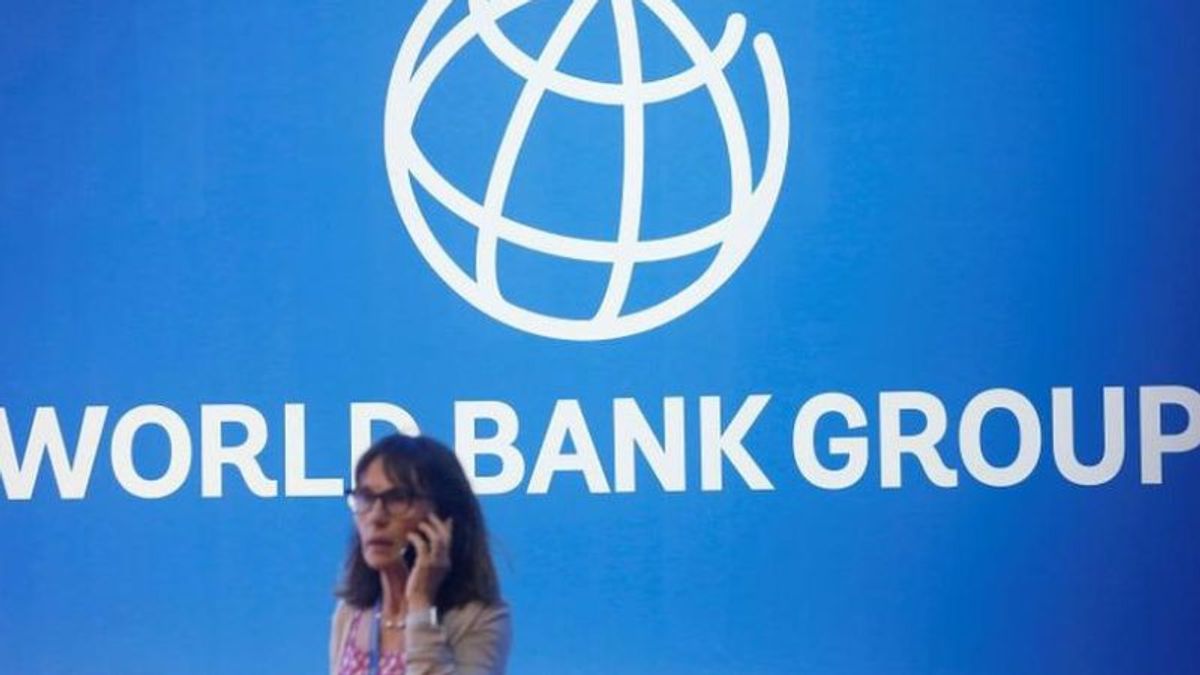JAKARTA - Global growth will slow sharply to 1.7 percent in 2023, the third-weakest expansion rate in nearly three decades and 1.3 percentage points lower than previously predicted, the World Bank said Tuesday January 10, as monetary policy tightening to tackle Russian inflation and war in Ukraine dampened prospects.
With the United States, the euro region, and China all experiencing a "real period of weakness", the Washington-based agency also said further negative shocks, including higher inflation, a sudden rise in interest rates to contain it, and a resurgence of the COVID-19 pandemic, could push the global economy into recession.
"Global growth has slowed as far as the global economy has almost plunged into recession - which is defined as a contraction in global per capita income yearly - just three years after exiting the pandemic-induced recession in 2020," said a half-year report on the bank's Global Economic Prospects, reported by Antara, Wednesday 11 January.
Global growth is expected to recover to 2.7 percent in 2024, down 0.3 points from projected June.
A sharp drop in growth is likely to expand, with growth projections lowered for nearly all developed countries and about two-thirds of emerging markets and emerging economies in 2023, and about half of all countries by 2024.
Growth in the United States is expected to slow to 0.5 percent this year, 1.9 points below previous projections, as the world's largest economy experienced the fastest monetary policy tightening in more than 40 years to dampen rising food and energy prices, the World Bank said.
With inflation expected to moderate this year as the labor market weakens and wage pressure declines, the US economy is likely to grow 1.6 percent next year, revised down by 0.4 points.
In China, economic activity will worsen in 2022, with consumption limited by restrictions under "zero-COVID" policies and unprecedented drought. Growth is expected to increase to 4.3 percent this year as the lifting of pandemic restrictions releases pent-up spending, down 0.9 points from June's forecast.
For Japan, growth is anticipated to slow to 1.0 percent this year, a 0.3-point drop from June, after 1.2 percent growth in 2022, the World Bank noted that a slow pace would be seen "as well as other advanced economic slowdowns."
The resource-poor Asian nation faces challenges as high energy prices erode household purchasing power and reduce consumption, he added. Japan's real gross domestic product is expected to grow 0.7 percent by 2024, 0.1 points higher than expected in June.
The euro area will see zero percent growth this year, revised down 1.9 points, as ongoing energy supply disruptions linked to Russia's invasion of Ukraine and prospects for further tightening monetary policy. The area will grow 1.6 percent next year, the World Bank estimates.
Global trading volume is expected to grow 1.6 percent this year, after a 10.6 percent jump in 2021 and an increase of 4.0 percent in 2022.
Going forward, the World Bank warns that central banks may need to raise interest rates more than expected today to depend on inflation, increasing the risk of "mistake policy steps."
In a recession scenario, where tighter financial conditions are assumed to result in widespread financing difficulties in emerging markets and developing countries, the World Bank says global gross domestic product will only grow by 0.6 percent by 2023.
This will translate into a contraction of 0.3 percent per capita, the report said.
The English, Chinese, Japanese, Arabic, and French versions are automatically generated by the AI. So there may still be inaccuracies in translating, please always see Indonesian as our main language. (system supported by DigitalSiber.id)








